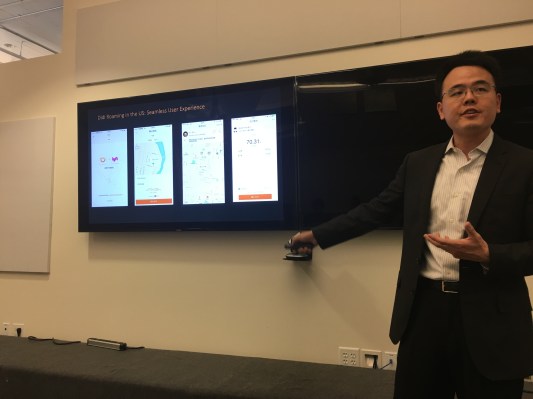Lyft and Didi Kuaidi are gearing up this week to launch a public beta of its collaborative service in the U.S. for Chinese travelers visiting America. This is by way of interlinking APIs so that customers of one app can hail cars in the other’s market.
In the next few weeks, Lyft and Didi will launch a public beta for Americans traveling to China. Lyft and GrabTaxi will also launch in the coming weeks cross-platform services for Southeast Asians traveling to the U.S. and Americans traveling to Southeast Asia.
What these public betas make possible is the ability for travelers to keep using the local, ride-hailing apps they’re used to. That means, for example, Chinese travelers can continue using the Didi app in the U.S. to request rides, with the main difference being that the drivers will be from Lyft. Chinese passengers can also pay in the same method they’re used to (WeChat or Alipay), see the estimated cost in their local currency and have the option to communicate with the driver — even if they don’t speak English — via an in-app translation service.
Drivers will make the same amount of money as they usually do in the U.S., Lyft said. The same goes for Didi in China and Grab in Southeast Asia. Lyft would not disclose the revenue deal they’ve worked out with partners, though one reporter in the room said they heard that Didi is allowing Lyft to keep 100 percent of the revenue. Lyft would neither confirm or deny that rumor.
Ultimately, these partnerships are in place because Lyft, Didi and Grab believe these types of services need to be localized and account for cultural differences.
“Looking forward, I think what we are launching today is really the first step or the gateway towards a better future ride-sharing network across the world,” Li Zijian (pictured above), senior director for international strategy at Didi, said. “I think the network that we’re building together is based on the common shared idea that ride-sharing is a highly localized business.”
That said, Uber takes an entirely different approach. Instead of partnering with local providers, its strategy is to aggressively expand into countries, including China, and try to battle the current ridesharing leaders there.
Didi’s platform, which includes taxis, buses, private cars and more, facilitated 1.43 billion rides last year in China. Daily, Didi sees 10 million rides, with 14 million car owners and drivers. Grab, which operates in Southeast Asia, currently has 250,000 drivers, operates in six countries, 40 cities and sees 1.5 million bookings a day.
[gallery ids="1305707,1305708,1305694,1305693"]
The launch of Didi’s service in the U.S. via Lyft and impending launch of additional cross-platform services comes a few months after Lyft, Didi, Ola and Grab announced a strategic partnership to work together on technology and services. Although executives from Ola were not present today, Lyft says Ola, which is based in India, is still involved in the partnership.
